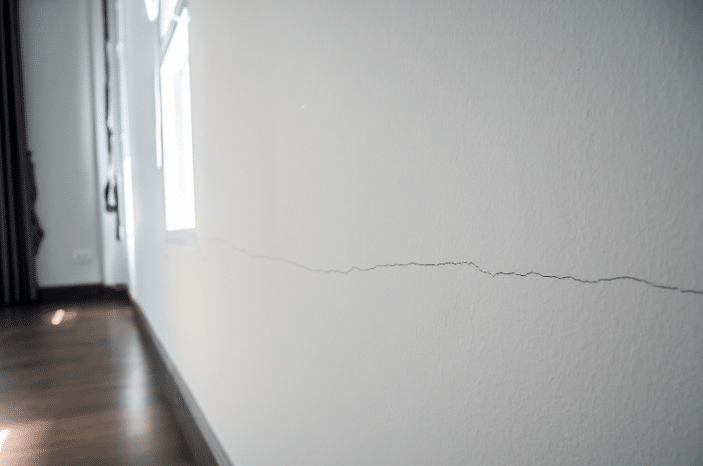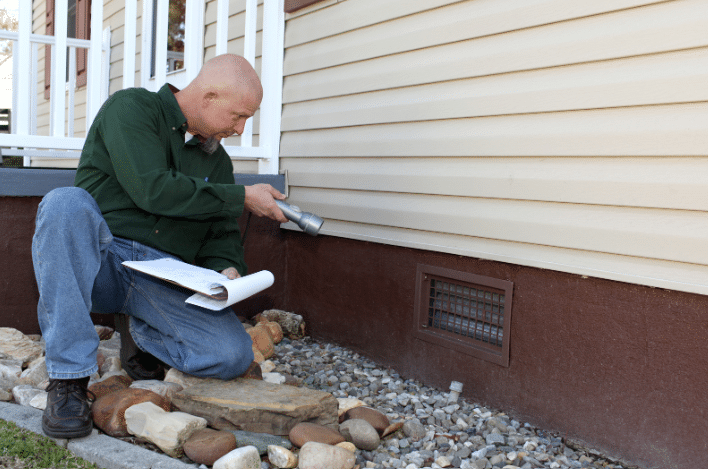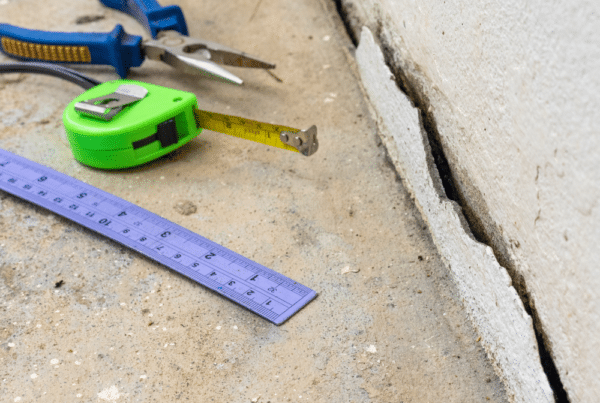Understanding Foundations in North Texas

Living in North Texas comes with its perks and challenges, especially when it comes to your home’s foundation. The expansive clay soils and unpredictable weather patterns in the region can pose unique challenges for homeowners, therefore, raising the questions about foundation repairs in North Texas.
Therefore, let’s delve into the essentials of foundations and foundation repairs in North Texas. We will also navigate some common misconceptions and offer guidance on distinguishing between critical fixes and unwarranted interventions. Let’s take a crack at it.
Soil and Weather Factors Affecting Foundation health.
North Texas is famous for its clayey soil, which expands during wet seasons and contracts in dry spells. This natural behavior can exert significant pressure on foundations, causing cracks and shifts over time. While cracks can be alarming, not every fissure signifies impending doom. Differentiating between normal settling and structural damage is crucial to avoid unnecessary repairs that may strain your budget.
Furthermore, the extreme weather conditions in North Texas, ranging from scorching heat to heavy rain, can impact the soil around your home, potentially leading to shifts in the foundation. Homeowners often mistake these natural movements for severe structural issues, prompting unnecessary and costly repairs. By understanding the local climate and assessing weather patterns, you can better gauge the urgency of foundation repairs.
Knowledge is power when it comes to foundation care. Understanding local soil conditions, recognizing natural movements, and being aware of the signs of genuine structural damage empower homeowners to make informed decisions about the necessity of repairs. Education becomes a powerful tool in the fight against unnecessary and costly interventions.
Read Also: Foundation maintenance tips for your home.
Signs of Genuine Foundation Problems.
Not every crack or gap in your walls spells disaster. Many factors, including settling, aging, or even minor seismic activity, can cause cosmetic issues that don’t compromise the structural integrity of your home. Recognizing the subtle signs of genuine foundation problems is crucial to avoid falling prey to misleading indicators and engaging in unnecessary repairs. With that in mind, you may then ask yourself, “what signs should I worry about, and which signs do I not need to worry about?”
We wish it was as easy as identifying winter from summer, but for foundation and foundation repair related issues, a trained eye is important. Important to note when discussing foundation repairs in Texas: there are only 2 licensed professionals in the State of Texas legally recognized to give an opinion as to the performance of a foundation. One is a Licensed Professional Engineer, and the other is a Licensed Professional Home Inspector. Foundation contractors are not licensed by the state and there are no requirements for their training and aptitude.

Therefore, engaging a qualified structural engineer or home inspector for a thorough inspection is the most reliable way to determine whether your home requires foundation repairs. Unfortunately, some unscrupulous contractors may exaggerate issues or misdiagnose problems, leading homeowners to opt for unnecessary repairs. Seeking a second opinion from a reputable professional before committing to extensive foundation work is always a wise move.
Foundation Repair Red Flags
While many foundation repair companies are reputable, it’s essential to be aware of potential red flags. Some common warning signs include free inspections with hidden fees, scare tactics, limited time offers, and companies discouraging second opinions. Genuine foundation issues don’t adhere to a strict timetable, so a rushed decision may lead to unnecessary repairs.
Unveiling Sales Tactics in Foundation Repair
Engineers estimate that a significant portion of foundation repairs in North Texas may be unnecessary. Even reputable foundation repair consultants and sales professionals are trained to use tactics that may not align with the climate and soils in the region. Here are some of the common sales methods used, that you can look out for:
- Free Inspections with Strings Attached: Some companies offer free inspections to get their foot in the door. However, be cautious if they pressure you into immediate repairs or if their “free” inspection comes with hidden fees.
- Scare Tactics: Beware of companies that use fear as a sales tactic. They may exaggerate the severity of the issue, claiming your home is on the brink of collapse. A trustworthy professional will provide a balanced assessment without resorting to scare tactics.
- Limited-Time Offers: If a company pressures you with limited-time offers or discounts, take a step back. Genuine foundation issues do not adhere to a strict timetable, and a rushed decision may lead to unnecessary repairs.
- No Second Opinion Allowed: If a company discourages you from seeking a second opinion or insists their diagnosis is final, it is a clear warning sign. Reputable professionals welcome second opinions and encourage homeowners to make informed decisions.
Criteria and Tolerances: Separating Fact from Fiction
Foundation repair companies may employ specific criteria and tolerances to convince homeowners of the need for repairs. It’s crucial to understand industry standards and consult with multiple professionals to accurately assess the severity of the problem. Some of the criteria and tolerances include:
- Narrow Tolerance Ranges: Some companies use narrow tolerance ranges to categorize minor shifts as significant issues. Therefore, it is crucial to understand the industry standards and consult with multiple professionals to assess the severity of the problem accurately.
- Inconsistent Measurement Techniques: Be wary of companies that use inconsistent or unreliable measurement techniques. Accurate assessments require precise tools and methodologies, and discrepancies in measurements may be a sign of unscrupulous practices.
- Overemphasis on Cosmetic Damage: While cosmetic damage can be concerning, not all cosmetic issues indicate structural problems. Some companies may exaggerate the importance of minor cosmetic flaws to push unnecessary repairs.
- Lack of Transparency: Beware of companies that are not transparent about the criteria they use to determine the need for repairs. Moreover, A trustworthy professional should be willing to explain the assessment process and provide clear evidence of structural issues.
Navigating Foundation Care with Confidence.
Professional Home Inspectors play a crucial role in the early detection and assessment of potential foundation problems. They provide a comprehensive evaluation, an objective assessment, act as an early warning system, and offer educational insights to empower homeowners.
While foundation issues are common in North Texas, not every crack in the wall or uneven floor requires immediate and extensive repairs. By arming yourself with knowledge about the soil, weather conditions, and the signs of genuine structural damage, you can navigate the tricky terrain of foundation care with confidence.
Conclusively, do not fall prey to unnecessary interventions—be informed, seek professional advice, and ensure that your home stands on a solid foundation, both literally and figuratively. Professional home inspectors are invaluable allies in this journey, providing unbiased assessments that can guide you towards informed decisions for the well-being of your home.



